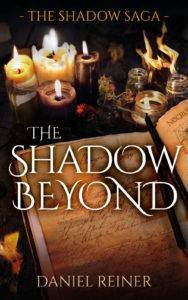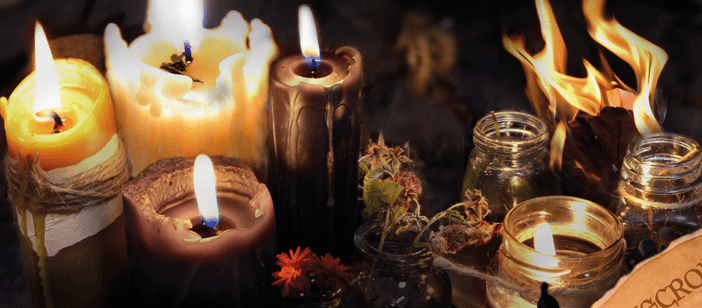From the Publisher:“I am not dead; nor am I fully alive. The intangibles of thought and memory are nearly all I have in common with the man I once was. Half-consumed, I sit upon the floor, a biblical leper…
What brought the young Robert Adderly to this wretched point? A graduate student at Miskatonic University during Prohibition, he had led an average life—up to the point when his fiancée, Elizabeth, was reduced to ashes before his very eyes. In his quest to find answers to the riddle of Elizabeth’s demise, Robert is drawn into an alien and dangerous world. A burning need to get to the bottom of the mystery opens his eyes to a reality much larger and more dangerous than he could have ever imagined, where magic is just another science, and his system of beliefs is challenged… and toppled.”
About the author: “Daniel Reiner is a native of Pittsburgh, PA. Spending his formative years at Carnegie Mellon University, it was there he discovered the world of H.P. Lovecraft in the old Del Rey paperbacks. Later, with a burst of creativity, he eventually became comfortable enough in that world to carve out his own niche, and populate it with memorable characters.”
 “Science, Robert, has many more facets than those traditionally taught at this university—at any university. In mathematics, we take for granted that a certain sequence of numbers and formulae, calculated correctly, will consistently produce the same result. Yes?”
“Science, Robert, has many more facets than those traditionally taught at this university—at any university. In mathematics, we take for granted that a certain sequence of numbers and formulae, calculated correctly, will consistently produce the same result. Yes?”
I nodded.
“Mathematics, chemistry, physics are all hard sciences. Experiments are repeatable. Results are consistent.”
A note of nervousness had crept into his deep voice, giving it a higher pitch. I nodded, and keep eye contact with him as he spoke, both to reassure him that I was following along, and to keep him going.
“Words, I’ve come to learn, are as much of a science as numbers.”
He spoke the sentence with finality, as if it had been the goal he had been trying to reach. Unfortunately, it made no sense to me.
“Words,” I said. “As in giving a speech?”
“No.” He cleared his throat. “I misspoke. It’s more than just words. Words and actions, combined in a specific manner, and perhaps with other components, can consistently produce the same result. And for those who know the correct words, the correct actions—a great many things become possible. Things any sane man would question.”
Had it not been for the shaking tone in his voice and the events of the last twenty-four hours, the thought would never have entered my mind, the word would never have left my mouth.
“Magic.”
“Yes,” he said, almost sadly. “I was raised as you were. The Church was always there for me. In my youth I strongly considered entering the priesthood. Magic? For most of my life, it was impossible for me to lend any credence at all to such a concept, though superstition was always there. Spill some salt, throw a pinch over your shoulder. Hmm? But people can change, given enough time and an open mind. And given proof. I had an experience which I consider to be proof.”
He rose from his chair and poured two glasses of water from a pitcher by the window, handed one to me. I thanked him and took a sip. He resumed his seat and drank deeply. When he spoke again, his voice was strained, haunted. I could see fear in his eyes.
“About three years ago, Doctor Gardiner received a shipment from Egypt: a sarcophagus. He had removed it from the shipping crate and invited me to the unveiling. I was puzzled at first, as I had no interest in the field of archaeology. He insisted, however, that the mummy within was special, and pertained to something with which I had helped them. When I arrived as instructed—at sunset—at his office in Clemmons Hall, he unexpectedly guided me upstairs to the roof. As we finished our climb I noticed three other men there. I’d met none of them previously, but now I know them to be friends of Doctor Gardiner. They surrounded a large stone sarcophagus. Gardiner asked me to examine it. On the lid was a drawing I interpreted as a horizon with stars. One star in particular was drawn with more emphasis than the others. Above the drawing were two symbols that made no sense to me. However, below the drawing were some hieroglyphics I recognized. It was then that the reason for my presence that evening became clear.
“After finding the artifact, they had managed to translate the symbols on their own, but had been stymied as to their meaning. It was the very problem Doctor Gardener had handed to me some weeks prior, albeit without any context. I’d applied certain cryptographic methods, and discovered that the symbols described specific days of the year. Now, with the situation presented to me fully, the drawing with the symbols seemed to imply some sort of causality: When certain stars were above the horizon at certain times of the year, some event might occur. But what? I relayed this thought to the group. Gardiner smiled grimly, and told me that the sarcophagus was discovered buried under tons of debris. He had surmised that the underground chamber in which it had been placed had collapsed due to an earthquake. He went on to say that chambers of that type were usually created with narrow passageways linking the chamber to the hillside under which they were hidden, so that the dead could have an unimpeded view of the stars.
“But according to Gardiner, that particular sarcophagus had not seen the light of the stars for over four thousand years. He pointed to the symbols above the drawing. The first, he said, was the man’s name: Keraph Thet. But it was the second that had alerted them to attend to this particular mummy. It was the symbol for a being known as Hastur. And as he spoke that name, the sarcophagus lid moved.
“I almost shrieked aloud. Or maybe I did shriek. We both jumped back, and the other three men produced weapons—an axe and rifles. The man with the axe introduced himself to you last night, Robert, as Howard Carter; his real name is Jebediah Higgins.”
I frowned at the memory of Higgins.
“He moved into position on the right while the men with the rifles stood on the left. The lid slid noisily towards us. As the opening grew, the overpowering stench of abyss engulfed us. Gardiner and myself, directly downwind from the opening, covered our noses and mouths to protect ourselves from the fetid odor.
“The lid moved a full six inches, then stopped. What I saw then I don’t think I will ever forget. The skeletal remains of two hands emerged from the inside, clamped onto the edge of the lid and begin pushing it towards us. My heart was close to bursting. Whatever was entombed inside of that crypt was shifting the heavy stone with ease. It appeared, however, that I was the only one close to panic. Higgins was readying himself, apparently planning on taking a swipe at the creature. Doctor Gardiner calmly removed an object from his pocket, something flat and star shaped. At last, the sound of grinding stone ceased. To this day, I thank God that the light from the surrounding buildings and street lamps did not reveal even more to me than what I did see when the creature within sat up.
“Imagine a man dead of starvation, naked, with the skin and muscles contracted tightly around the bones, dried and decayed by the passage of four thousand arid years. To my horror, I noticed traces of hair still left on the desiccated skull, and the teeth were completely exposed with no trace of lips to conceal them. The eyes, though, were the most memorable detail: the only aspect of the creature that betrayed the least sign of life. They glowed a dim orange-red. That is all that I had a chance to see. Gardiner presented the object in his hand, holding it boldly out towards the undead corpse. Its effect was immediate. The creature froze, and in that instant, Higgins pulled the axe back and landed a deadly blow on the neck, severing the head cleanly from the body. The torso collapsed backwards into the sarcophagus as the head flew off, landing a few yards away.”
He paused here as if attempting to read my reaction, but whether he was satisfied or disappointed in the expression I wore, I couldn’t tell. I hardly knew how I felt, myself.
“The three men then put down their weapons, and with much effort, managed to twist and shove the lid completely off of the crypt. Using a spade, Higgins retrieved the head, and lifted it into the sarcophagus, placing it at the feet of the corpse. The other two men swiftly produced several large beakers of liquid, and poured the contents into the open sarcophagus. It quickly became evident that the liquid was a very powerful acid. Only when the last bit of corpse bubbled and dissolved did Gardiner lower his hand, and return the star shaped object to his pocket.”
Excerpted from The Shadow Saga by Daniel Reiner. This excerpt is published here courtesy of the publisher and should not be reprinted without their permission.

























